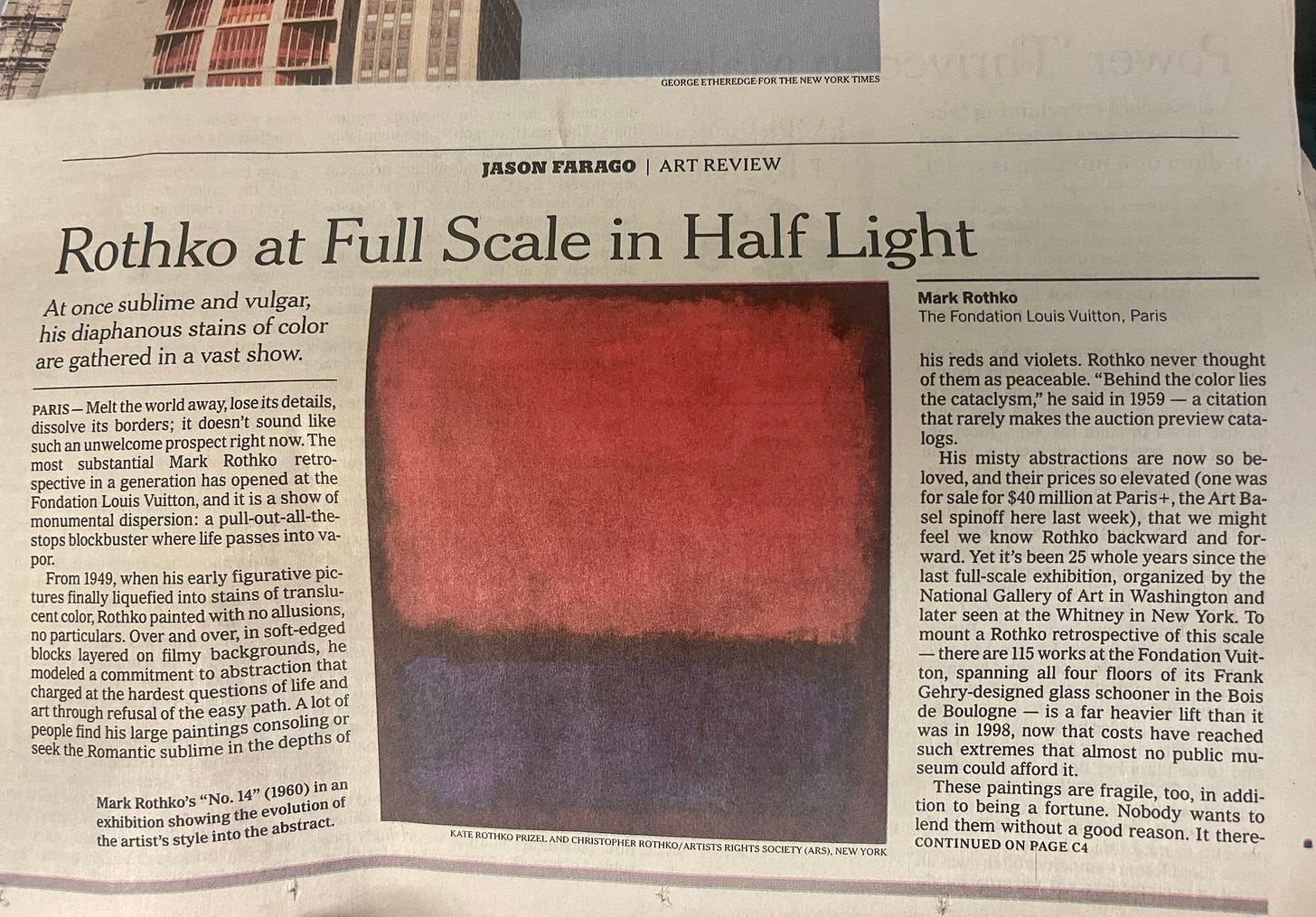Catch up on part one here first:
Where we left off . . .
Free Time was never meant to be a get-rich-quick guide, teaching people how to make money, or teaching them how to teach coaches how to be coaches online.
It is about freeing time through smarter systems to help business owners escape the Burdensome B’s: getting bored, bottlenecked, buried by bureaucracy, or burned out—and thus from wanting to Burn It All Down.1
But for reasons both ephemeral and structural (see also: media apocalypse), my delulu dream of third-time’s-a-charm bestseller status hasn’t quite panned out sales-wise. Yet.
While I have now sold over 8,000 books across all formats (ebook, audiobook, and hardcover), sixty percent of the collector’s edition hardcover stock is still collecting dust in the warehouse.
To make a long story too long, the two years I spent investing heavily in this new direction in time, energy, money, and various experiments haven’t quite penciled out financially . . . yet.2 At least not in a way that also supports a mortgage and family in New York City, where I have lived for as long as I have been self-employed (13 years).
However, it is still the book and audience closest to my heart, and the one I knew I needed to write. No regrets.
As Ben astutely pointed out in the comments of part one, the better question isn’t how much I’ve earned since publication, but how much—and the quality of—time I’ve set free. On that front, I still feel aligned, grateful, and clear on my priorities. (Doh is just where I let my innermost emo out)
But when my friend Todd suggested a print-on-demand paperback with a new afterword, my heart sank.
Would this be the first afterword in business book history to shamefully report a company with less revenue than when the author set out to write the book?
I shared this hesitation with Todd. I was still riding the post-pandemic rollercoaster ride, I said, and hadn’t stabilized my business yet. Ironically, it was putting myself on the line to create this book that burned through the biggest chunk of my runway.
“In this type of economy, small business owners need operational efficiency now more than ever,” he offered.
Todd’s wise words pricked the bubble of humiliation threatening to swallow me whole. On some level deeper than the self-flagellation, I knew he was right.
Sometimes, becoming ruthlessly efficient is the only thing keeping a fledgling business afloat while trying to rebuild a crashing plane—or at least replace the missing panel—while flying it. (Sorry Boeing—too soon?)3

On the subway ride home, heart hurting and head still hanging a bit low in defeat, I caught a quote from the late celebrated abstract painter Mark Rothko in the New York Times Thursday Arts section, the inky version I had carried with me for the commute:
🍫 “Behind the color lies the cataclysm.”4
It reminded me how none of us ever know what is going on behind the scenes of a book, a business, or another person’s life.
Those of us who publish work do the best we can with the information and skills we have at the time. But we are not perfect.
Books are fossilized records of what an author knew then; they can’t possibly capture what happens after the final PDF is sent to the printer—and even that is six to eight months prior to publication. This is always a risk.
The risk is change, for better or for worse, which is also the only guarantee.
One strives to ensure the principles and examples in a book are evergreen, but it’s still always a bit cringe to revisit earlier work written by a less mature, less skilled self.
No matter what, after publication—after the fanfare of the launch party, after making book tour rounds, after netting out creative risks—there may yet come a cataclysm.5
I believe writing a book will test an author, often dramatically, in their chosen topic, demanding an intensified “patient zero” experience so they can speak more credibly and with greater nuance from that specific leadership seat.
For all the systems and principles I share in Free Time that have served me incredibly well throughout my decade-plus in business, I never did promise answers on how to place the biggest creative bet of your life while ensuring success on every level,6 how to become a bestselling author a third time over, precisely how to rebuild a speaking business in the second, third, and fourth years following a pandemic, or most importantly—and perhaps the deepest root of my current conundrum—how to rebuild when your inner compass seems to have lost its orienting magnet.
Two weeks after the book brainstorm, my friend (who connected me with Todd) introduced a workshop I was delivering for his Focus Academy:
“Free Time is one of the best business systems books I’ve ever read,” he said. “Its buoyancy and joyfulness resonated deeply, like your friend wrote you a love letter about why being organized in your business and your life is such a gift, with such a unique spin.
Jenny shares how you can remove some of the stress and burdens of the responsibilities in a way that no one else says it.”
Shawn had no clue just how much I needed to hear those words in that moment.
Between Todd’s perspective and his, these words gave me the surge of energy I needed to pick myself back up. They both saw me and the book exactly as I hoped fellow business owners would.
I reminded myself (again) to refocus on all the abundance and the good: all the magic moments, new connections, moving thank-you notes, and all the time and vital life force that we continue to set free.
I recommitted to helping the book make its way into the world no matter what the numbers say.7
I have never been great at balance sheets anyway.
❤️
Mike Michalowicz echoes this in his book Clockwork, another of my favorites:
Productivity gets you in the ballpark. Organizational efficiency gets you hitting home runs. Organizational efficiency is when all the gears of your business mesh together in harmony. It is the ultimate in leverage, because you design your company’s resources to work in concert.
Delulu ‘til I’m blueblue: Sorry not sorry, but for better or worse my stubborn determination to find success on my own terms is woven into the fabric of my being.
Even enormous and famously flush tech companies declared 2023 their year of austerity and efficiency. In a twisted way, I was precisely on trend, even though their cuts directly impacted my business.
I remember in the early days at Google, former CEO Eric Schmidt used to tell us, “The answer to all known problems is revenue.” It sounded so smart at the time. Only now do I realize the problem arises when you lose clarity on where exactly that revenue is supposed to come from, and the ability to instantly materialize it. 😭
It’s possible the New York Times reporter slightly misquoted Rothko. The full quote I found:
“You think my paintings are calm, like windows in some cathedral? You should look again. I’m the most violent of all the American painters. Behind those colors there hides the final cataclysm.”
—Mark Rothko, 1959
Change is one thing, outright deception and manipulation is quite another. For influencers with unscrupulous business practices, there’s a Reddit thread called /r/lifecoachsnark where aggrieved former clients shine light on shady dealings — hat tip to
for telling me about this!With regard to betting on oneself, here’s a more cynical take than my usual fare—William Deresiewicz puts it thusly in his book, The Death of the Artist (emphasis mine):
The culture industry works by spreading risk. Success in the arts is impossible to predict; most books and albums never earn back their advances; most movies fail to recoup production costs. Companies place their bets on a range of properties, hoping to score a Harry Potter now and then. Absent such support, as DIY individuals, artists are left to make one very bad bet: on themselves.
. . . Anyone who tries to do it DIY will find themselves assembling an ad hoc culture industry of their own, complete with as many middlemen as they can afford.
For a sunnier take, my dad replied to part one via email with the following words of encouragement. I figured I’d reshare in case it’s something you need to hear today too 😊
Think of Free Time like the iconic (legendary, seminal) first record album of The Velvet Underground — it sold very poorly (5,000 copies) BUT — everybody who bought the album started a band. Free Time is a work of art much more than a commodity in book-world. As a work of art it is a HUGE success by any and all measure.
Thanks Daddy-O, you’re the best 🥰








Well Jenny....you did it again. You spoke the words that gobs of authors and entrepreneurs usually don't share....and that is all about HOW HARD and disappointing our great ideas can be. But....they are still GREAT ideas....and you consistently put that out. If I had a dollar for everytime I read the last paragraph on your page 1 of Free Time to my friends and colleagues who have their own businesses....I'd be one rich lady....and so would you!! Thank you for continuing to be honest and "out there!" Bev Kaye
Mucho thanks for your kind words Jen ! "Free Time" IS a magnificent work of art. The ribbon sums up its greatness as an object AND then there are all of those wise words !!!